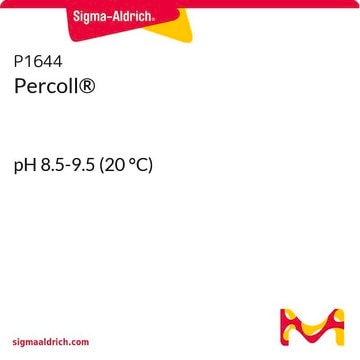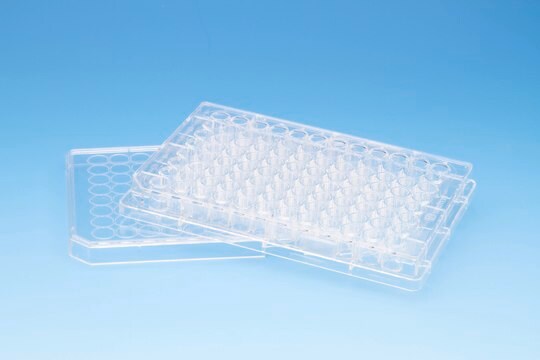D2158
Histodenz™
nonionic density gradient medium
Synonym(s):
5-(N-2,3-Dihydroxypropylacetamido)-2,4,6-triiodo-N,N′-bis(2,3-dihydroxypropyl)isophthalamide
About This Item
Recommended Products
Quality Level
form
powder
application(s)
hematology
histology
storage temp.
room temp
SMILES string
CC(=O)N(CC(O)CO)c1c(I)c(C(=O)NCC(O)CO)c(I)c(C(=O)NCC(O)CO)c1I
InChI
1S/C19H26I3N3O9/c1-8(29)25(4-11(32)7-28)17-15(21)12(18(33)23-2-9(30)5-26)14(20)13(16(17)22)19(34)24-3-10(31)6-27/h9-11,26-28,30-32H,2-7H2,1H3,(H,23,33)(H,24,34)
InChI key
NTHXOOBQLCIOLC-UHFFFAOYSA-N
General description
Application
Features and Benefits
- It has very low toxicity, low osmolality, high density, and low viscosity (compared to sucrose).
- It is water-soluble, non-ionic, and chemically near-inert.[6]
Legal Information
Storage Class
11 - Combustible Solids
wgk_germany
WGK 1
flash_point_f
Not applicable
flash_point_c
Not applicable
ppe
Eyeshields, Gloves, type N95 (US)
Choose from one of the most recent versions:
Already Own This Product?
Find documentation for the products that you have recently purchased in the Document Library.
Customers Also Viewed
Articles
Centrifugation enables the separation of particles by sedimentation. Learn how to separate particles using a centrifuge and how to use Stokes' law to calculate the velocity of sedimentation.
Our team of scientists has experience in all areas of research including Life Science, Material Science, Chemical Synthesis, Chromatography, Analytical and many others.
Contact Technical Service









